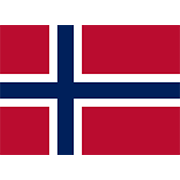Fiscal subject related
Norway introduced an updated version of its Standard Audit File for Tax (SAF-T Financial) – version 1.30, which became mandatory on January 1, 2025. This format helps standardize how businesses report financial and tax data to authorities.
What is new in SAF-T 1.30?
- Improved alignment with the European EN 16931 standard,
- Required two-way communication with public sector entities,
- Visual file structure: Header, Masterfiles, GeneralLedgerEntries.
A grace period is in place to help businesses transition. Version 1.20 can still be used for older reporting periods.
What is SAF-T?
SAF-T (Standard Audit File for Tax) is an XML-based format for sharing accounting data with Norwegian tax authorities. It improves audit efficiency and tax transparency.
Who must comply?
- All companies with bookkeeping obligations using electronic systems,
- Foreign companies with a permanent establishment in Norway,
- Businesses with annual turnover over NOK 5 million,
- Exemptions: Small businesses with fewer than 600 vouchers or using manual accounting (e.g. spreadsheets).
Submission rules:
- SAF-T files are submitted on request (no fixed deadlines),
- Files can be uploaded manually or submitted via API through official tax portals,
- Businesses must ensure their accounting systems can generate valid SAF-T XML files.
Two types of SAF-T in Norway:
-
SAF-T Financial – Covers full accounting data (GL, invoices, tax info),
-
SAF-T Cash Register – Reports detailed sales and POS transactions.
Summary:
- SAF-T version 1.30 became mandatory on January 1, 2025,
- Businesses must ensure their systems are fully compliant with SAF-T requirements,
- They should be prepared to submit SAF-T files when requested by the tax authorities,
- All submissions must follow the structured XML format to remain compliant and avoid potential penalties.
Other news from Norway
Norwegian Parliament Sets VAT Rates for 2026
 Norway
Author: Ivana Picajkić
Norway
Author: Ivana Picajkić
The Norwegian Parliament (Storting) has adopted its annual VAT resolution for the 2026 budget year, confirming that the general VAT rate will remain at 25% from 1 January 2026, alongside existing reduced rates. Read more
Subscribe to get access to the latest news, documents, webinars and educations.
Already subscriber? Login


Reminder: Norway Moves Toward Mandatory E-Invoicing and Digital Bookkeeping
 Norway
Author: Ivana Picajkić
Norway
Author: Ivana Picajkić
Norway has launched a consultation on introducing mandatory digital bookkeeping and B2B e-invoicing, led by the Norwegian Ministry of Finance, with the aim of modernising accounting, reducing administrative burdens, and improving transaction traceability. Under the proposal, businesses would be required to send e-invoices from 1 January 2028 and receive e-invoices and maintain digital records from... Read more



Norway: Businesses Must Create Daily Z Reports, Printing Can Follow Later
 Norway
Author: Ivana Picajkić
Norway
Author: Ivana Picajkić
Under the new bookkeeping rules, businesses using cash register systems must prepare a daily cash settlement. Read more
Subscribe to get access to the latest news, documents, webinars and educations.
Already subscriber? Login


New document was uploaded: EV-chargers from the Fiscalization Perspective in Norway
 Norway
Author: Ivana Picajkić
Norway
Author: Ivana Picajkić
The purpose of this document is to explain rules regarding the treatment of EV chargers for electric vehicles in Norway in relation to fiscalization. The document will explain whether they are subjects of fiscalization or not, whether there are some special rules and regulations, or if there are some special rules Read more
Subscribe to get access to the latest news, documents, webinars and educations.
Already subscriber? Login


Norway: Stored Receipts Must Be Closed Before Day-End
 Norway
Author: Ivana Picajkić
Norway
Author: Ivana Picajkić
The Norwegian Tax Administration mandates that businesses finalize all sales before issuing a daily Z report. Read more
Subscribe to get access to the latest news, documents, webinars and educations.
Already subscriber? Login


Reminder: Norway’s Strict Rules on Invoices
 Norway
Author: Ivana Picajkić
Norway
Author: Ivana Picajkić
The Norwegian Tax Administration has reiterated that invoice numbers must not be altered and may only be generated through certified invoicing software or pre-printed forms bearing the seller’s enterprise details. Read more
Subscribe to get access to the latest news, documents, webinars and educations.
Already subscriber? Login


Norway: Bergen seeks permission for Sunday shopping
 Norway
Author: Ivana Picajkić
Norway
Author: Ivana Picajkić
Bergen and Oslo are seeking national approval to allow Sunday shopping, aiming to meet tourist demand while challenging Norway’s tradition of keeping shops closed on Sundays Bergen’s city council has voted to apply for national recognition as a “typical tourist destination.” If approved, this would allow shops in certain parts of the city to open on Sundays. Oslo has made the sa... Read more


